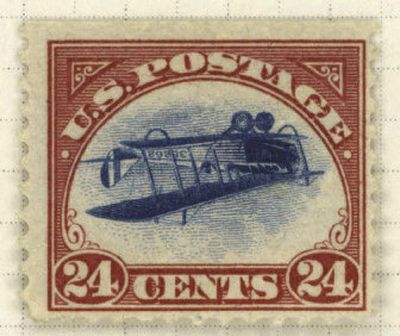Rare stamp may be on envelope in sealed ballot box

FORT LAUDERDALE, Fla. – An absentee ballot was mailed with what may have been a rare stamp worth as much as $200,000 – the famous Inverted Jenny – but the envelope is in a box that by law can’t be opened.
Broward County Commissioner John Rodstrom discovered the stamp while reviewing absentee ballots. There was no name on the envelope, so the vote didn’t count.
What looked like a small stamp collection on one envelope caught Rodstrom’s eye about 8 p.m. Tuesday. At least one was from 1936, Rodstrom said. Then he noticed one had an upside-down World War I-era airplane – the hallmark of an Inverted Jenny.
Rodstrom discussed the stamp with other members of the canvassing board, and a stamp-collecting Broward County sheriff’s deputy overheard them talking about the possible Jenny.
He said the stamp would be very valuable if it was real. But it was too late.
“By that time we had already sealed the box. And once you seal the box, under the election law you can’t unseal it,” Broward County Court Judge Eric Beller said.
Elections officials will retain the ballot for 22 months, Jenny Nash, a spokeswoman for the Florida secretary of state’s office, told the Associated Press. After that, any action is up to the county elections supervisor.
A telephone message left with Fred Bellis, the executive assistant to Broward County Supervisor of Elections Brenda Snipes, was not returned Saturday.
Snipes’ spokeswoman, Mary Cooney, said the supervisor is too busy with balloting to focus on the stamp. Cooney said ballots and materials are usually destroyed after the 22-month holding period.
Maynard Guss, president of the Sunrise Stamp Club, said an Inverted Jenny, if authentic, could be worth $200,000. But when the ballot was mailed the stamp was canceled, reducing its value. Guss estimated a canceled Jenny would likely sell for $20,000 to $100,000.
The 24-cent Jenny stamps were printed in 1918. Sheets were run through presses twice to process all the colors and on one pass, four went through backward. Inspectors caught the errors on three sheets and destroyed them, but somehow, a sheet of 100 stamps got through.
Stamp collectors have spent 88 years trying to find them all.